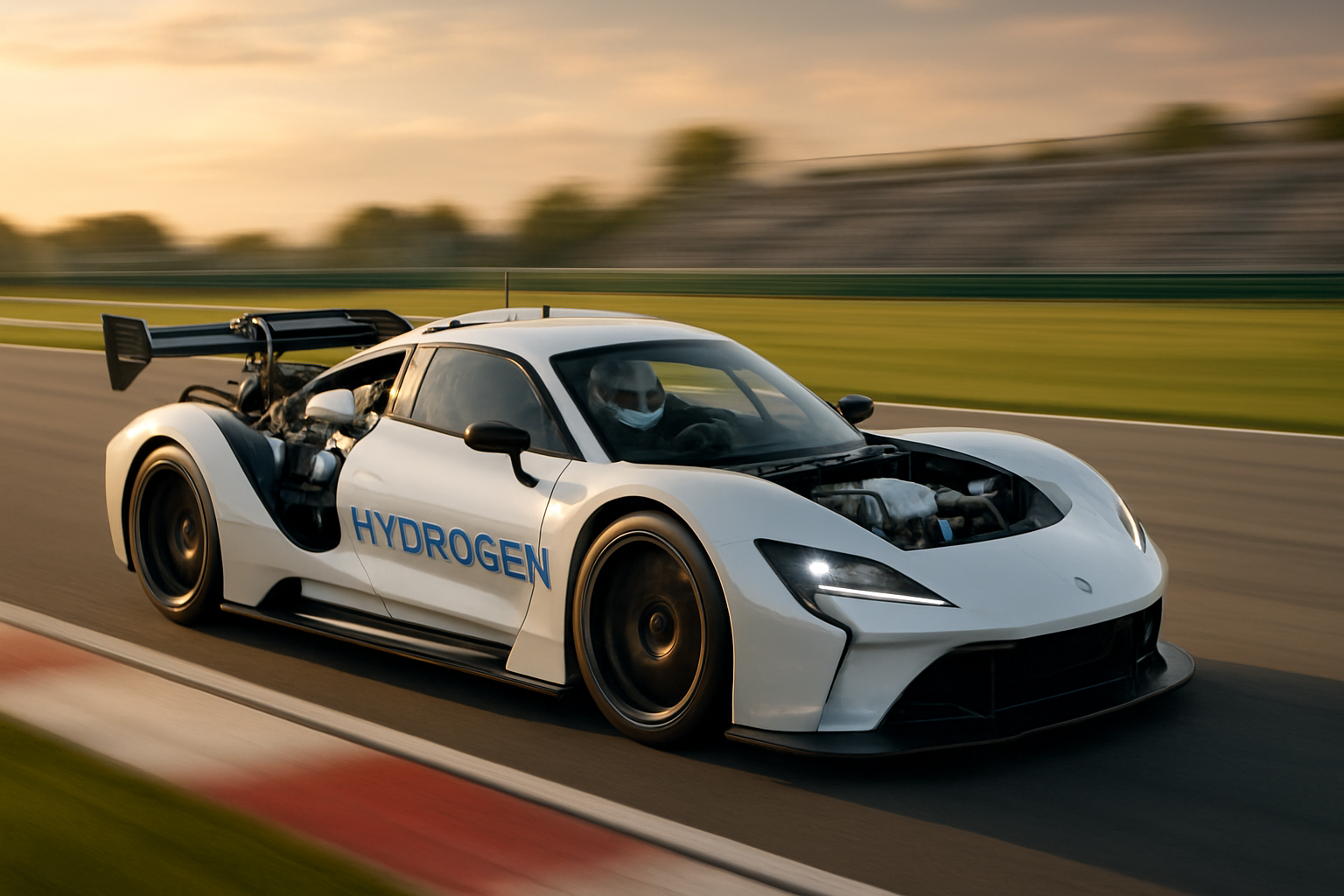Synthetic Fuels: A New Chapter in Sustainable Motorsport
Roaring engines, the smell of burning rubber, and... synthetic fuel? Welcome to the future of motorsport. As the automotive world grapples with environmental concerns, a surprising contender is emerging to keep the heart of racing beating strong. Synthetic fuels are revving up to revolutionize the track, promising high-octane thrills without the heavy carbon footprint. But what exactly are these fuels, and can they truly deliver on their green promises while satisfying the insatiable appetite for speed?

From Lab to Track: The Racing Potential
The allure of synthetic fuels for motorsport lies in their ability to mimic the properties of traditional gasoline while significantly reducing carbon emissions. Racing teams and manufacturers are eyeing this technology as a way to maintain the raw power and visceral experience of combustion engines while aligning with global sustainability goals. Formula 1, the pinnacle of motorsport, has already announced plans to incorporate synthetic fuels into its future regulations, potentially setting a precedent for other racing series to follow.
Performance Without Compromise
One of the most exciting aspects of synthetic fuels is their potential to match or even exceed the performance of traditional petroleum-based fuels. Engineers are working tirelessly to fine-tune the chemical composition of these fuels, optimizing them for high-performance applications. Early tests have shown promising results, with some synthetic fuels delivering increased power output and improved engine efficiency. This means that drivers could potentially experience the same heart-pounding acceleration and top speeds they’ve come to expect, all while reducing their environmental impact.
Overcoming the Hurdles
Despite the promising outlook, the road to widespread adoption of synthetic fuels in motorsport is not without its challenges. The primary obstacle is cost. Currently, the production of synthetic fuels is significantly more expensive than refining traditional gasoline. However, as technology advances and production scales up, experts predict that prices will become more competitive. Another hurdle is the energy-intensive nature of the production process. For synthetic fuels to truly be a green alternative, the entire manufacturing chain must be powered by renewable energy sources.
A Ripple Effect Beyond the Racetrack
The implications of synthetic fuel technology extend far beyond the world of motorsport. As racing series adopt and refine these fuels, the knowledge gained could accelerate the development of sustainable fuel solutions for everyday vehicles. This trickle-down effect has been a hallmark of motorsport innovation for decades, from safety features to performance enhancements. The push for synthetic fuels in racing could be the catalyst needed to bring this technology to the masses, potentially offering a lifeline to the millions of existing vehicles on the road that rely on internal combustion engines.
The Environmental Equation
One of the most compelling arguments for synthetic fuels is their potential for carbon neutrality. While burning these fuels still releases CO2, the carbon used in their production is captured from the atmosphere or industrial processes. This creates a closed carbon cycle, theoretically resulting in net-zero emissions. However, critics argue that the energy required for production could offset these benefits if not sourced renewably. As the technology matures, lifecycle assessments will be crucial in determining the true environmental impact of synthetic fuels compared to other alternatives.
Shifting Gears: Industry Adaptation
The advent of synthetic fuels is prompting a significant shift in the automotive and motorsport industries. Engine manufacturers are re-evaluating their designs to optimize performance with these new fuels. Fuel suppliers are investing heavily in research and development, racing to perfect their formulations. Even race strategists are considering how the unique properties of synthetic fuels might influence pit stop tactics and overall race dynamics. This technological shift is creating new opportunities for innovation and competition, breathing fresh life into an industry that some feared was nearing its twilight in the face of electrification.
The Fan Experience: Evolution or Revolution?
For motorsport enthusiasts, the introduction of synthetic fuels raises intriguing questions about the future fan experience. Will the distinctive sounds and smells of racing change? How will this shift impact the visceral connection between fans and their favorite sport? While the core experience of speed and competition remains unchanged, the subtle nuances of synthetic fuel use could add a new dimension to how fans engage with and appreciate motorsport events.
In conclusion, synthetic fuels represent a fascinating intersection of tradition and innovation in the world of motorsport. As the industry navigates the complexities of this new technology, it stands on the brink of a new era - one that could preserve the essence of racing while steering towards a more sustainable future. The journey from laboratory to checkered flag is just beginning, but the potential for synthetic fuels to transform motorsport and beyond is undeniably exciting. As engines roar to life on tracks around the world, they may soon be powered by fuels that represent not just the thrill of the race, but the promise of a greener tomorrow.






